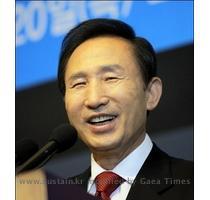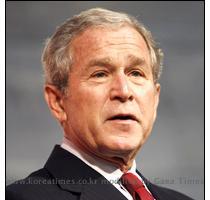Divided Koreas remember start of Korean War with vastly differing views on its origins
By Kelly Olsen, APFriday, June 25, 2010
Divided Koreas remember start of Korean War
SEOUL, South Korea — The two Koreas commemorated the 60th anniversary Friday of the outbreak of the Korean War, promoting vastly different views of the origins of the conflict that still divides their peninsula.
The war started in the early hours of June 25, 1950, with an attack by North Korean troops. The Korean peninsula had been divided in 1945 after colonial ruler Japan’s defeat in World War II.
The United States and 15 other countries sent troops to aid South Korea under the fledgling United Nations, while Chinese soldiers came in to fight with the North and the Soviet Union provided air support and advisers. Three years of combat devastated both sides. The fighting ended with an armistice, not a permanent peace treaty, leaving the peninsula in a technical state of war.
In Seoul, South Korea held an official ceremony to remember the war, widely known as “6/25″ for the date it began. President Lee Myung-bak presented plaques of appreciation to representatives of countries that sent soldiers or supplies to aid the war effort.
“Sixty years ago today, North Korea’s communists opened fire on all fronts of the 38th parallel on a weekend’s dawn when all people were sleeping peacefully,” Lee said in a speech. The gathering was attended by South Korean and foreign veterans of the conflict, foreign ambassadors and serving South Korean and U.S. soldiers. The U.S. stations about 28,500 troops in South Korea as a deterrent against North Korea.
North Korea’s view of the conflict, which it calls the Fatherland Liberation War, is vastly different. Under the headline “U.S., Provoker of Korean War,” the country’s state news agency on Tuesday accused Washington of starting the war with a surprise attack.
“All the historical facts show that it is the U.S. imperialists who unleashed the war in Korea and that the United States can never escape from the responsibility,” the Korean Central News Agency said.
On Thursday, KCNA followed up with a massive 4,300-word article listing damage done by the United States to North Korea since 1945.
KCNA cited the “Committee for Investigation into Damage Done by the U.S. to the Northern Half of Korea” as finding the total monetary cost for North Korean suffering came to a staggering $65 trillion. That amount is five times the U.S. national debt of about $13 trillion.
A commemorative rally was expected to take place Friday in Pyongyang’s Kim Il Sung Square, named after North Korea’s founder and wartime leader who died in 1994.
The mood surrounding the 60th anniversary is far different than during the 50th in June 2000, which came just days after the conclusion of the first-ever summit between the Koreas.
This time relations are tense following the sinking of a South Korean warship in March off the west coast of the peninsula near waters contested by the two countries.
South Korea and the United States accuse North Korea of firing a torpedo to sink the 1,200-ton Cheonan, killing 46 sailors. North Korea denies any role in the sinking and has vowed war if it is punished.
Lee used the occasion of the anniversary to urge Pyongyang to own up to the sinking.
“North Korea should clearly and frankly admit and apologize for its wrongdoing over its provocation,” Lee said. He called on the country to assume a responsible attitude in the international community.
At a separate ceremony at the War Memorial of Korea in Seoul, the commander of U.S. and U.N. forces in South Korea issued a warning to Pyongyang.
“The North Korean leadership must know that further provocations will be dealt with swiftly and decisively,” Gen. Walter Sharp said in a speech.
China, which remains North Korea’s closest ally, called the war an event of the past and emphasized it maintains good relations with both Koreas.
“History is already history,” Foreign Ministry spokesman Qin Gang told reporters Thursday, adding the war “has taught us to cherish the hard-won peace and tranquility and stability.”
Associated Press writers Kwang-tae Kim and Claire Lee in Seoul and Anita Chang in Beijing contributed to this report.

